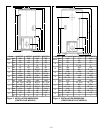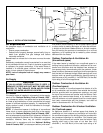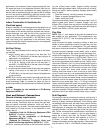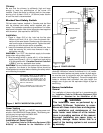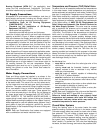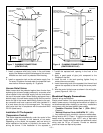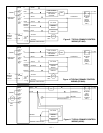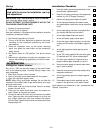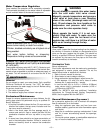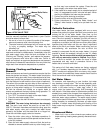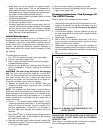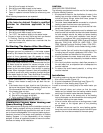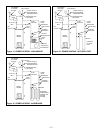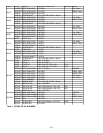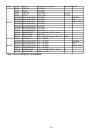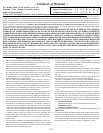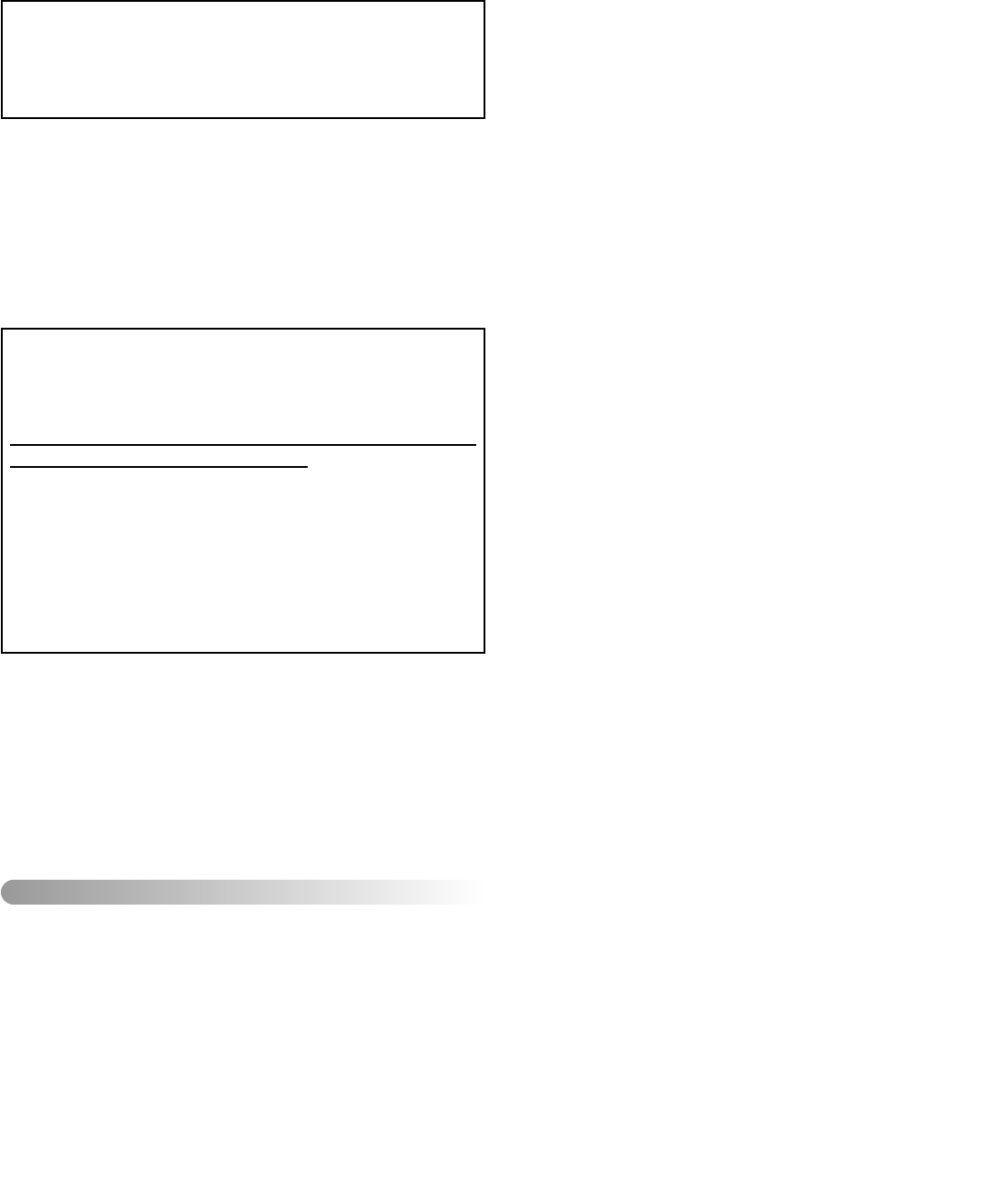
– 16 –
1. Shut off the oil supply at the tank.
2. Shut off the cold water supply to the heater.
3. Turn "OFF" the electrical supply to the water heater.
4. Open an upstairs hot water faucet (to relieve any pres-
sure).
When freezing temperatures are expected:
1. Shut off the oil supply at the tank.
2. Shut off the cold water supply to the heater.
3. Turn "OFF" the electrical supply to the water heater.
4. Connect a hose to the drain valve and drain as directed
in “Draining, Flushing and Sediment Removal”.
5. Leave the drain hose attached as a reminder that the
tank has no water in it.
Re-Starting The Heater After Shut-Down
1. Follow instructions for “Filling the Water Heater” and
“Startup” when heater is ready to be put back into ser-
vice.
2. If the heater does not start, check to see if the relay on
the burner has tripped. Reset if necessary. Check to see
if the thermostat is set at “Normal” or “High”.
3. If the heater does not start:
a) Turn "OFF" the electrical supply to the water heater.
b) Shut off the oil supply at the tank.
c) Call a qualified Oil-Burner Technician.
Combination Potable Water Heating and
Space Heating (Combo)
This section serves as a guide for the installation and use of
“Combo” heating systems utilizing a domestic water heater
which has been specifically approved for such use. It is writ-
ten for those knowledgeable in the required trades and pro-
fessionals involved in the design and installation of Combo
Heating Systems. It is the responsibility of the installer/
designer to follow all applicable codes to ensure the effec-
tiveness and safety of the installation.
CAUTION:
READ BEFORE PROCEEDING
The following requirements must be met for the installation
of Combo Heating Systems:
1. All components used for the distribution of water in the
heating loop must be suitable for potable water. These
include all piping, fittings, solder and fluxes, pumps for
circulation of water, valves, etc.
2. The water heater must not be connected to a hydronic
heating system that has been used previously.
3. No boiler treatment chemicals of any kind shall be intro-
duced into the system.
4. The Combo System components must be selected and
sized to meet and maintain the total calculated demands
for both domestic service hot water and space heating
requirement. The sizing and installation must be per-
formed in accordance with good engineering practice
such as ASHRAE Handbooks, HRAI, Hydronics Institute
Manuals, CGA B149, NFPA 54, ANSI Z223.1, CSA
F280, National/Provincial Building Codes, CSA C22.1,
ANSI/NFPA 70, CSA B51 and/or codes having jurisdic-
tion.
5. The air handler (fan coil) and/or the circulating pump in
a heating loop will require a dedicated 120V circuit. This
must be provided and identified for this purpose.
6. All piping between the water heater and the air handler
or heating loop must be adequately insulated to reduce
heat loss.
7. If the local jurisdiction requires a back-flow preventer in
the cold water line, an expansion tank of adequate size
must be installed.
8. To reduce the scald hazard potential, a mixing valve
must be installed.
Installation
The heating mode may be one of the following options:
1. A fan coil/air handler (Figure 14).
2. A hydronic baseboard (finned tube) loop (Figure 15).
3. A hydronic in-floor heating loop (Figure 16).
In order to connect a heating loop to the water heater you
must:
1. Install shut-off valves and unions so that the water
heater can be isolated from the heating module should
servicing of the water heater become necessary.
2. Install a drain valve at the lowest point of the heating
loop so that water can be drained from the heating mod-
ule without affecting the water heater.
• If the air handler does not have a venting means, install
an air bleed at the highest point of the plumbing
arrangement.
• If solenoid valves are used for zone heating applica-
tions, they must include electrical proof of valve full open
position and must be connected to the water pump.
CAUTION
Hydrogen gas can be produced in a hot water system
served by this heater that has not been used for a long
period of time (generally two (2) weeks or more).
Hydrogen gas is extremely flammable and can ignite
when exposed to a spark or flame. To reduce the risk of
injury under these conditions, it is recommended that the
hot water faucet be opened for several minutes at the
kitchen sink before using any electrical appliance con-
nected to the hot water system. Use caution in opening
faucets. When hydrogen is present, there will probably be
an unusual sound such as air escaping through the pipe
as the water begins to flow. There should be no smoking
or open flame near the faucet at the time it is open.
NOTE: It is recommended that all water lines
in the home be drained. Contact a qualified
plumber for directions applicable to the
heater.
VI) COMBINATION HEATING



